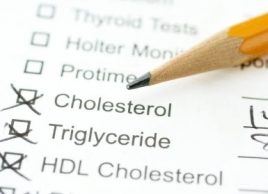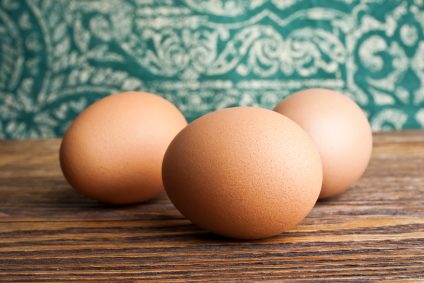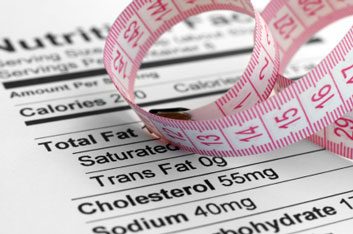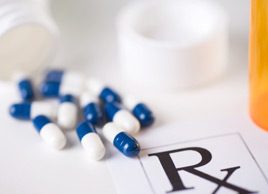
Confusion about cholesterol
The word “cholesterol” has been vilified in our culture – so much so that “cholesterol free” has become a synonym for healthy, or at least a healthwashing version thereof, and having lower levels of cholesterol is a health goal most are aware of. But how clear are you, really, on what cholesterol is and how it affects your health? We spoke to the experts to clear up the confusion.

The myth: All cholesterol is bad
The truth: “Cholesterol is an essential component of cell membranes” that has been around for at least 500 million years, says Dr. Jacques Genest, a researcher in cardiovascular diseases at the Research Institute of the McGill University Health Centre in Montreal. In other words, human – and animal – life couldn’t exist without it.
That said, Dr. Genest adds, every cell in our body is also capable of making enough cholesterol for its needs – there’s no evidence we need cholesterol in our food. And as human diets have changed in the past few thousand years to include much more cholesterol than historically, we haven’t adapted to the shift. This increase in dietary cholesterol, which our bodies weren’t designed to process, is what’s contributing to high levels of heart disease.

The myth: Cholesterol comes from unhealthy foods
The truth: Cholesterol is made by animal cells and only present in foods made from animal sources. That bag of chips touting its lack of cholesterol? That doesn’t make it healthy – it just means the potatoes are fried in vegetable oil.

The myth: Eggs are bad
The truth: “Eggs are an extremely healthy food,” says Dr. Genest. “They provide very good protein and very little fat.” That said, a single egg yolk contains about 250 mg of cholesterol, what he considers the most you should eat daily. So rather than splurging on a three-egg omelette with bacon, serve a single poached egg alongside brown toast, sautéed spinach and a whole-fruit smoothie.

The myth: Only dietary cholesterol affects blood cholesterol
The truth: Our cholesterol levels are determined by both genetic and lifestyle factors – and the latter includes exercise, smoking, body mass and stress as well as diet.
And when it does come to diet, cholesterol intake isn’t the only factor. “The major determinant of cholesterol is not necessarily cholesterol in the diet, it’s the amount of saturated fat,” says Dr. Genest. “As you eat more fried food, processed meats and animal-derived fat, you increase cholesterol quite markedly.”

The myth: As long as your cholesterol is below a certain number, you’re fine
The truth: “There’s a graded relationship between cholesterol and risk of heart disease,” says Dr. Karl Iglar, associate professor in the Department of Family and Community Medicine at the University of Toronto. “Even if you’re meeting the target for your risk group you can still lower your cholesterol more and thereby lower your risk.”

The myth: The target level of cholesterol is the same for everyone
The truth: “Normals are individualized based on risk,” says Dr. Iglar. “If patients’ risk for heart disease is high, their targets will be lower. If their risk for heart disease is low, their cholesterol can be higher.” The only way to ascertain what’s normal for you – and what you should be aiming for – is to consult with your doctor.

The myth: Taking drugs for cholesterol is a worst-case scenario
The truth: “Even though an individual may have a healthy lifestyle, their cholesterol may still be high and they might need other interventions,” says Dr. Iglar – this has to do with genetic factors out of our control. This doesn’t mean you can’t lower your cholesterol through a healthier lifestyle – you just may not be able to lower it enough. “If your set point is high, you can bring it down 20 percent,” says Dr. Iglar, “but you may not be on target.”

The myth: Once you’re on cholesterol-lowering drugs, lifestyle doesn’t matter
The truth: “Lifestyle modifications are critical,” says Dr. Iglar.
“Cholesterol is only one component of cardiovascular health” – and that’s not even to mention other diseases that are more likely to occur if your lifestyle isn’t up to par.
“The vast majority of people who are destined to have a heart attack could avoid it if they paid attention carefully to diet and lifestyle,” says Dr. David J.A. Jenkins, professor in the Department of Nutritional Sciences at the University of Toronto. “Drugs won’t stop you from getting fat, won’t lower your blood pressure, won’t improve your blood glucose – they’re not going to hit all the other things that are going to cause you trouble from a bad diet.”
Related:
• 4 foods that boost good cholesterol
• “I reduced my cholesterol.”
• Quiz: Are you at risk for high cholesterol?
